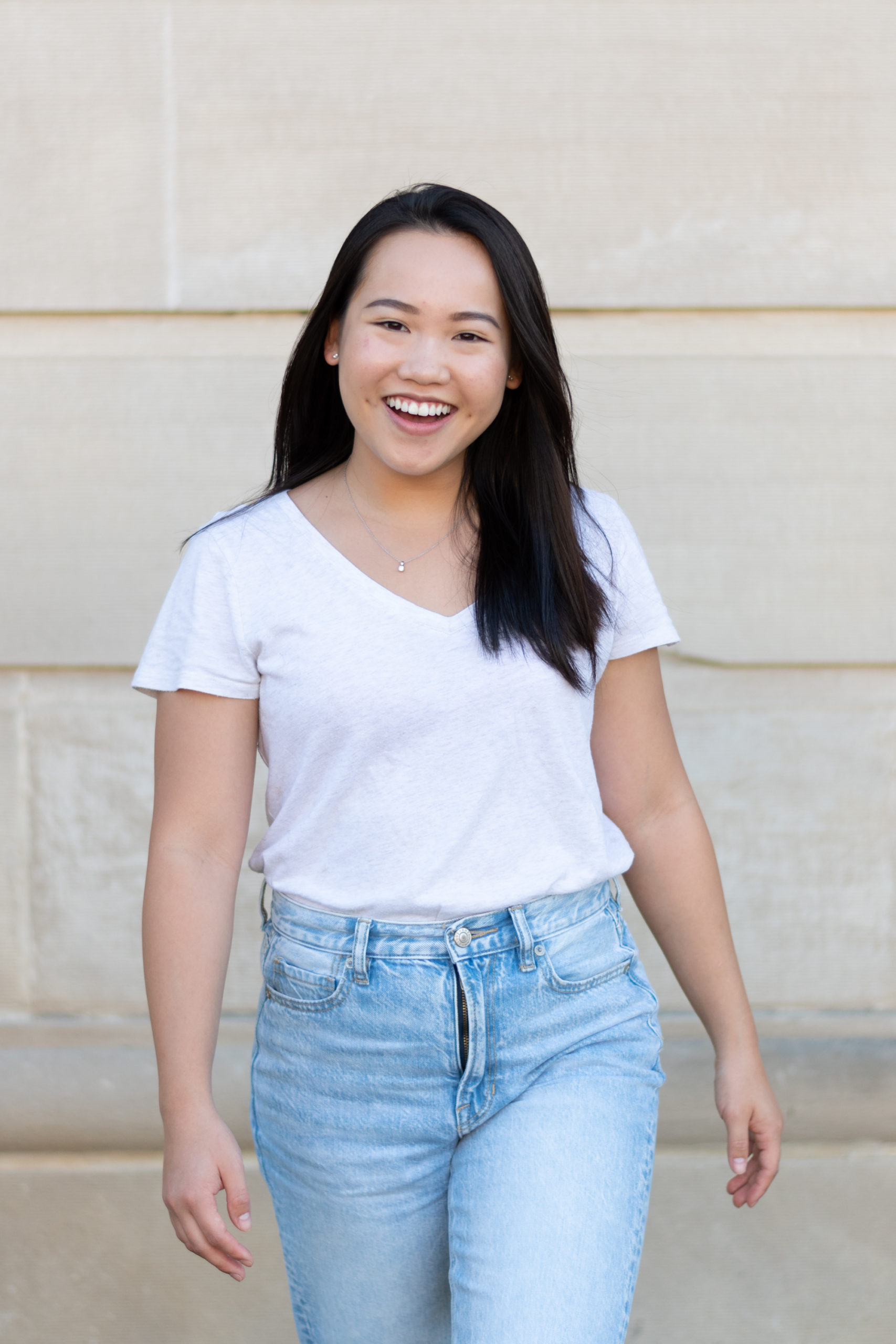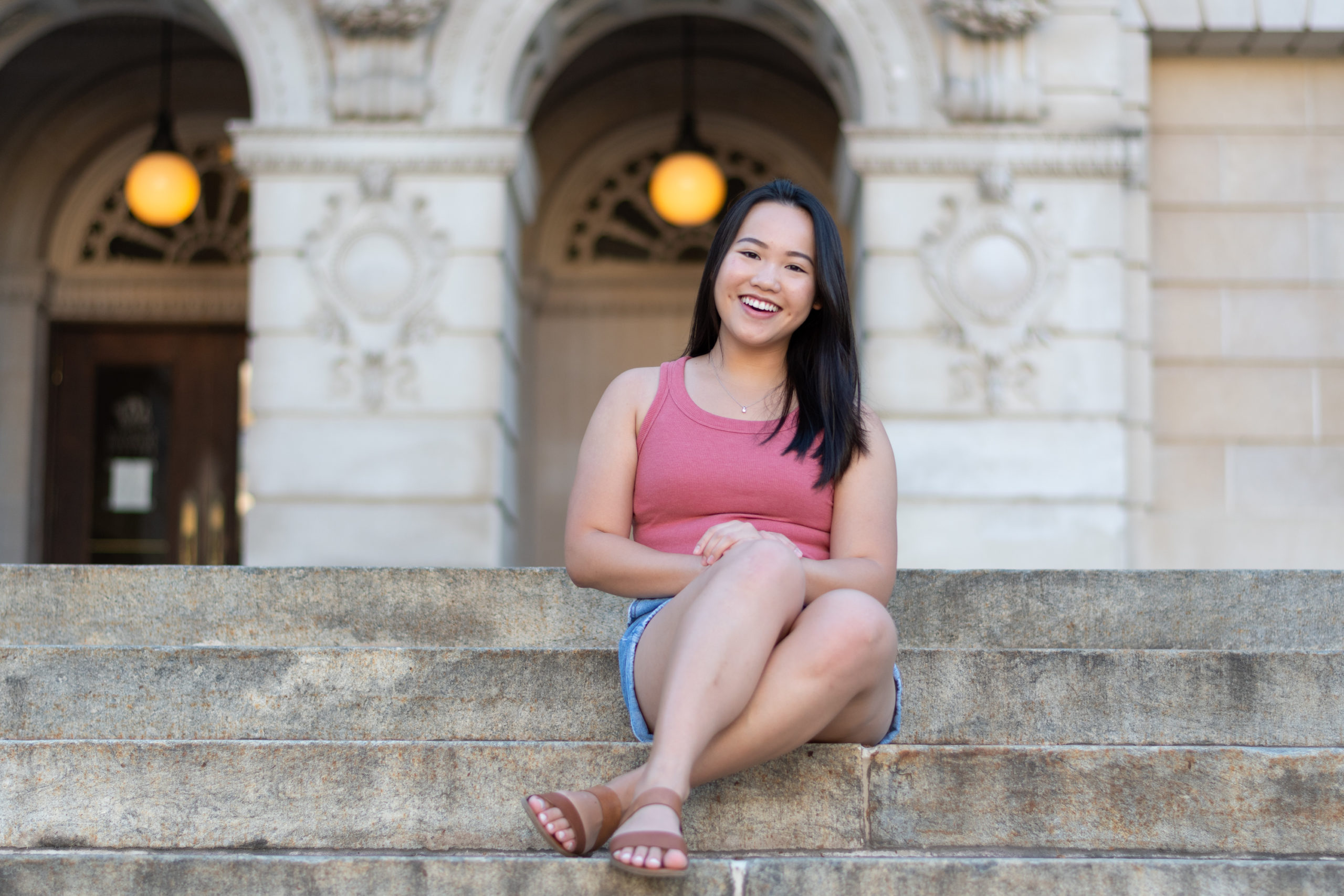As the first student in her program to participate in the Graduate Certificate in Innovation & Entrepreneurship Gabriela Chen didn’t know what to expect, and she found the lessons learned in her classes had broadened her perspective.
 Gabriela is MS & MPH Candidate (‘22) in Genetic Counseling and Health Behavior & Health Education. While many other students in her programs have completed certificates more traditionally associated with their fields, Gabriela wanted to explore all of the different opportunities at U-M.
Gabriela is MS & MPH Candidate (‘22) in Genetic Counseling and Health Behavior & Health Education. While many other students in her programs have completed certificates more traditionally associated with their fields, Gabriela wanted to explore all of the different opportunities at U-M.
“I am so glad I ended up finding the Graduate Certificate in Innovation & Entrepreneurship,” she said. “So many of the lessons learned in the classes can be applicable to your coursework and even beyond graduation.”
As someone who likes to “open many doors” to make the most of opportunities as they arise, Gabriela doesn’t have a clear plan on how she will incorporate entrepreneurship in her career, but does know it will inform her decisions after graduation.
“I learned lessons in my Intro to Venture Capital course about how companies grow and operate,” she said. “This knowledge will be invaluable when deciding on where to work after graduation.”
She still has a year before graduation, and getting dual Master’s degrees has been keeping her busy. She is currently working on her Genetic Counseling thesis and is conducting research with the Cardiovascular Center at Michigan.
 At the Cardiovascular Center she is working to understand the barriers and facilitators for patients who receive a Left Ventricular Assist Device and her thesis focuses on the perceived benefits and barriers to genetic counseling services from a population perspective.
At the Cardiovascular Center she is working to understand the barriers and facilitators for patients who receive a Left Ventricular Assist Device and her thesis focuses on the perceived benefits and barriers to genetic counseling services from a population perspective.
“There is currently no research to try to understand the general public’s understanding or motivations to opt in or out of genetic counseling when available,” she said. “The thesis is focused on complex adult conditions for example cardiology or cancer.”
She created a conceptual model based on the Health Belief Model, which is used to explain and predict individual engagement in health behaviors, and she is now going to work through the data.
Gabriela and her team expect that when people perceive their risk for disease to be high they will tend to overcome the barriers to use genetic counseling.
 “When patients perceive the benefits to be higher than the barriers they will seek genetic counseling, pretty straightforward,” she said. “I think it is interesting to understand why people do certain things.”
“When patients perceive the benefits to be higher than the barriers they will seek genetic counseling, pretty straightforward,” she said. “I think it is interesting to understand why people do certain things.”
It is her hope that this research will be helpful in the future to understand the different barriers and motivations patients are facing when making decisions about their health in order to increase utilization of genetic counseling services. To her it is all about taking a look at the broader picture of individuals’ behaviors.
“I think entrepreneurship in general has given me a broader perspective into what genetic counseling and public health can look like,” she said.

